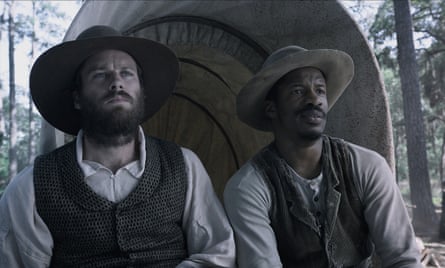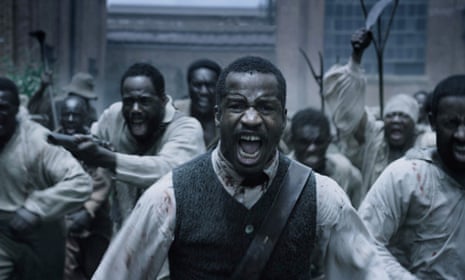The story of Nat Turner had profound consequences for America. The slave who became a preacher and then, in 1831, the leader of a revolt is said to have triggered a chain of events that included the civil war and the abolition of slavery less than 35 years later. For Nate Parker – writer, director and star of The Birth of a Nation – it’s been a seven-year journey to get his film made, and with a title provocatively taken from DW Griffith’s famously racist 1915 film about the foundations of America and the current furore around diversity in Hollywood, the timing of its premiere couldn’t have been any better. This is an alternative history of America’s roots which spits in the face of Griffith’s account.
Parker starts by creating mythology around Turner. His greatness is predicted from infancy in a ceremony. He has the ability to read and is allowed to revise the Bible. He is a great orator and preacher respected by all. Then, as quickly as Parker builds Turner up, he illustrates the horrors of slavery that engulf and take him down. There’s his father who is forced to go on the run after narrowly surviving a summary execution; and a series of rapes, lashings and force-feeding inflicted on his family members. All that leads up to the crescendo of the revolt itself, its centrepiece a powerful scene of Turner trading Bible verses with a slave-owning white preacher.

Acerbic moments like that are few and far between though; mostly, the film is heavy-handed, with subtlety nowhere to be found. The horrors that Turner endures are signposted with soaring music. The focus on Turner is all-encompassing, with other characters, including his wife (Aja Naomi King) and other rebels, feeling thin and unconvincing. When the revolt does come – a rebellion that saw five dozen slave owners and their families killed – Parker doesn’t leave anything to the imagination. Heads are crushed, stoved in and chopped off. Bodies are burned, teeth are broken. It’s a cathartic blood-letting that recalls the huff and puff of Braveheart, but instead of Mel Gibson splattering the English, it’s Parker hacking at the slave owners.
The film’s name, the timing of its premiere and the huge standing ovation it received mean this will be one of the festival’s most talked-about movies. But the film’s often ham-fisted composition will leave many turned off.

Comments (…)
Sign in or create your Guardian account to join the discussion